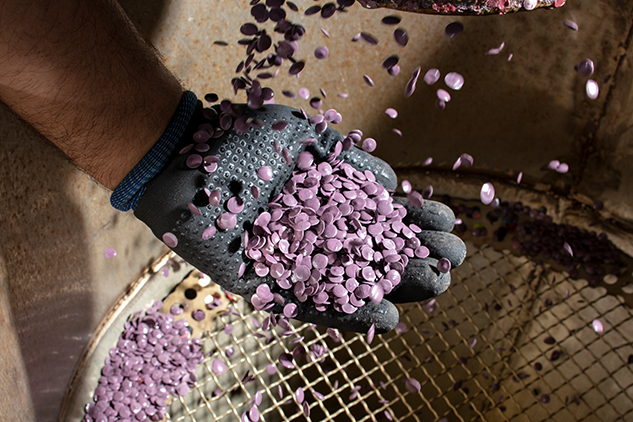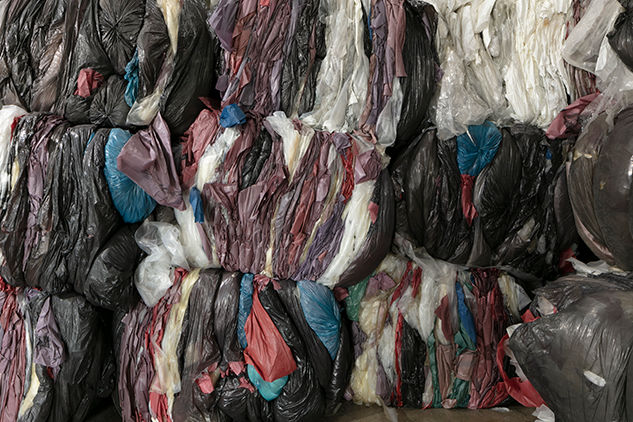As it is all over the world, the bipolar debate on food and non-food packaging, which continues to be discussed n the EU and Turkey, which meets a significant part of our foreign trade, continues to increase day by day.
On the one hand, alternatives to plastic packaging proposed by environmental protection associations, and arguments up to the ban on plastic bags and flexible packaging, on the other hand, there is an industrial branch where millions of personnel and thousands of scientists work, meeting all kinds of needs of the society, and products that prevent environmental pollution from plastic packaging developed in connection with this branch.
In addition, some opinions against the use of plastic indicate that the production of plastic packaging increases oil consumption in the world and indirectly triggers the rate of carbon dioxide in the air.
Despite this view, which is formed due to lack of information, the truth is; Especially petroleum is not consumed for the production of synthetic polymers. Ethylene and propylene gases, which are the raw materials of synthetic polymers, are a by-product of naphta, which is one of the products of petroleum distillation. If these by-products were not used in the production of synthetic polymers, they would have to be burned for energy production and would cause a large CO2 emission.
Another anti-plastic view argues that plastic wastes are not collected properly, that plastics that are not recycled and remain as waste in nature do not deteriorate and do not disappear in nature for about 400-500 years and pollute the environment, and that the solution to this problem can only be eliminated with non-synthetic plastic or completely non-plastic solutions.
Plastics, which are described as the material of the 21st century; We have become ubiquitous with reasons that provide many advantages such as ease of use, lightness and flexibility, and easy processing.
Plastics are also becoming the focus of discussions as they quickly replace materials such as glass, paper, aluminum and increase their usage areas. This situation also causes the production of a lot of imaginary information about plastics. Among these unrealistic ideas, “the harm caused by plastics to the environment and human health” comes first. Information that is completely unscientific and not based on any research, causes people to look at plastic with suspicion. However, PAGEV says "Plastic is the most environmentally friendly product" and emphasizes that no plastic material produced in accordance with the rules will harm human health.
It is claimed that plastics pollute the environment. However, polluting is a human behavior. We should not see plastics as the culprit of the random release of plastics into the environment. After all, plastics don't get there on their own. It is not right to hold plastics responsible instead of saying stop to those who throw plastic bags, bottles and other plastic packaging materials into the sea or nature. Individuals need to take responsibility in this regard. For this reason, it is extremely important to increase environmental awareness and explain the importance of recycling. The most important problem in our country is the lack of sufficient awareness. As a result of this, wastes are not collected separately at the source and recycling cannot become widespread. Local governments have great responsibilities for that subject.
In recent years, we have seen paper bags offered as an alternative to plastic bags. However, this practice, which will increase the use of paper, will cause much greater damage to the environment. The report, which compares plastic bags with paper bags, reveals why plastics are a more environmentally friendly solution.
The Progressive Bag Alliance, which operates in the United States, has proven with its research that disposable plastic bags are much more environmentally friendly than paper bags. The report prepared on the subject shows that disposable plastic bags are the least energy consuming material and the least environmental impact in the production, processing and recycling stages.
According to the report, the energy spent for the production of paper bags, which are shown as an alternative to plastic bags, is 4.5 times the energy spent for disposable plastic bags; Again, the energy consumed in the transportation of paper bags is 3 times the energy used in the transportation of plastic bags. In total, 73 kWh of energy is consumed for paper bags, while the energy used for plastic bags is only 14 kWh.
In the research, it is seen that plastic bags create less waste and are more environmentally friendly in terms of solid waste, which has become one of the most important agenda items in the world. In the report, it is stated that 1000 pieces of plastic bags create 4.7 kg of solid waste, while the same number of paper bags cause 33.9 kg of solid waste, about 7 times this figure.
In the report, it is emphasized that if disposable plastic bags are preferred to paper bags, greenhouse gas emissions will decrease and this will slow down global warming. It is also mentioned that cutting trees for the production of paper bags disrupts the balance in the ecosystem and harms the environment. The research shows that in this period when the value of water resources in the world is increasing much more due to global warming, it is much more important to prefer disposable plastic bags because plastic bags are produced by consuming much less water. The report underlines that 3,785 liters of water are consumed for 1000 paper bags, and only 30 liters for the same number of polyethylene plastic bags.
We should also consider that by cutting trees to produce paper bags, the environment is damaged and the ecological balance is disturbed. In addition, cotton or a similar product should be used for the production of cloth bags, which are another product offered as an alternative to plastic bags. In today's world where agricultural areas are shrinking and water resources are decreasing, it will not be the right choice to consume cotton etc. instead of using an environmentally friendly product such as plastic that is easily produced, uses less energy and can be recycled. Due to the advantages of plastic, it is very difficult to replace it with another material. For example, when it rains, how can you take the products you bought home with paper and cloth bags without getting wet?
It should be underlined that plastics are the most environmentally friendly product with the least energy consumption in the production and recycling stages. Plastics, which provide great advantages in many respects, also provide significant savings in the energy spent in transportation, as they are light materials. According to a study conducted by the Packaging Market Research Institute in Germany, if the packages made of plastic today were produced from wood, glass, paper, cardboard or aluminum, the weight of the packages and accordingly the transportation costs would have quadrupled. It would take twice the energy to produce these packages and the volume of the garbage would increase by 2.5 times.
According to the Canadian Plastics Association, the waste of all plastic bags in the world today accounts for less than 1 percent of the total waste, such as cigarette stubs, bottles, cans and food packaging that appear on the street and around us. This shows that plastics are only a relative pollution in terms of environment.
Today's plastic bags use 70 percent less plastic than they did 20 years ago. However, no other industry has taken such a path towards minimizing and protecting resources.
Only 4 percent of the world's total crude oil is consumed to produce plastics that save resources and help protect the environment. Plastic bags are produced from only 3% of this. However, every 100 kg of plastic part in cars, for example, reduces gasoline consumption by 12 million tons per year and CO2 emissions by 30 million tons per year in Europe. In other words, plastics, which consume 4% of the oil, help the rest to be consumed less.
In a 1992 study, it was revealed that American manufacturers saved 336 trillion Btu of energy with the use of plastic packaging. This energy is equivalent to 58 million barrels of oil, 9.2 billion m3 of natural gas or 14.5 million tons of coal.
The modern world is discussing/adopting the "Reduce, Reuse, and Recycle" approach, abbreviated as 3R, regarding plastics and other waste. We must use and recycle plastics efficiently. For example, paper can be recycled up to 5 times, whereas you can recycle plastic infinitely. While melting a plastic for recovery, it is heated between 120 and 200 degrees, while this rate is 650 degrees for aluminum and 1400 degrees for glass. As you can see, plastics are both recyclable and require the least amount of energy for recycling. When considering the life cycle of a product, all these steps from production to consumption and recycling should be taken into account and the overall picture should be looked at in this way.
Plastics make an important contribution to sustainable development. In terms of social progress, it enables more people to achieve higher standards of health and life. The use of plastic is accepted as an indicator of development, and the use of plastic is increasing, especially in developed countries. All over the world and in Europe, there is no ban on plastic bags. Methods such as selling for a certain fee, levying tax, and taking it back for a certain fee are applied. All of these are aimed at encouraging people to reuse plastic bags, use them as much as they need, and then recycle them. As in every field, modern people need to use their resources efficiently. This also applies to plastic bags.
With what we have covered so far, we think that we have demonstrated that plastic bags are an environmentally friendly material, contrary to popular belief. Let's not forget that the problem is not a plastic or other material problem. In order to solve the problem, we must use the materials we have with the principle of maximum benefit and spread the awareness of recycling to the whole society. Giving up plastic bags will only change the scale of the problem and will never be part of the solution.
Iron, Steel, Copper, Aluminum, Lead, Batteries, Paper, Plastics, Rubber, Glass, Engine Oils, Waste Oils, Accumulators, Tyres, Concretes, Rontgen films, Electronic Waste, Organic Waste
Plastic wastes are first separated according to their types and recycled. Recyclable plastic wastes, which are separated according to their types, are broken into small pieces in crushing machines. Enterprises can use these parts directly in the production process by mixing them with the original raw material in certain proportions; It can also be used as a second class raw material by remelting it and adding additives.

